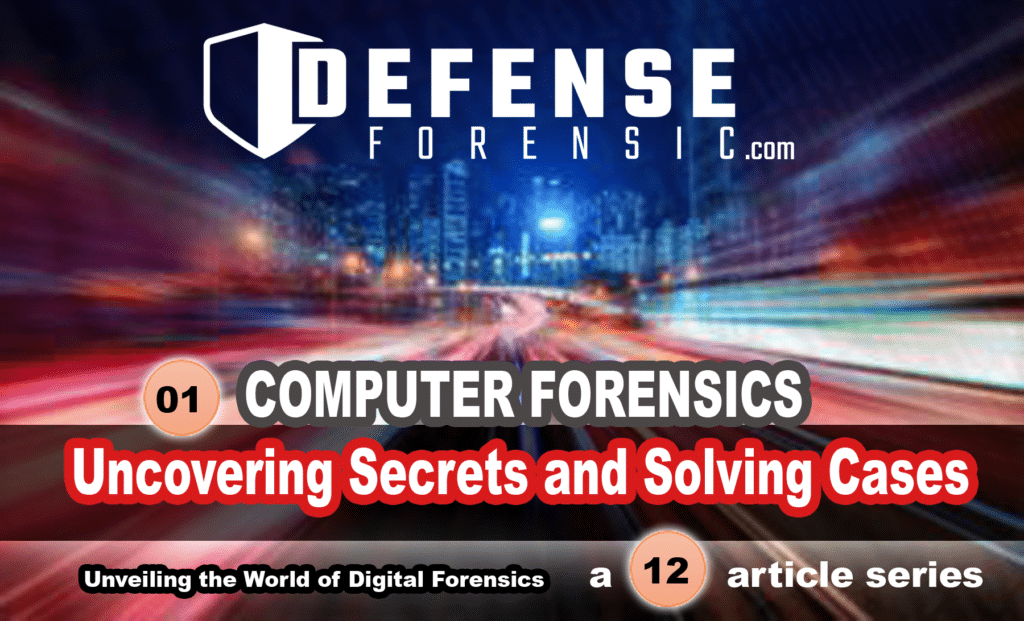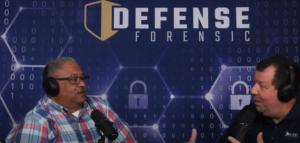Computer forensics is performed by forensic experts who investigate digital devices like computers and laptops to uncover hidden evidence. These forensic experts use their skills to solve a range of activities from cybercrime to civil disputes. By analyzing web browser history, files, and other digital footprints, computer forensic experts can help bring criminals to justice or resolve legal matters. In this article, we will examine the world of computer forensics and discuss how it contributes to solving cases.
What is Computer Forensics?
Computer forensics is a branch of forensic science that focuses on investigating digital devices for evidence. Computer forensic experts analyze computers, laptops, and other electronic devices to uncover hidden information through the use of specialized tools and techniques to extract data, recover deleted files, and examine web browser history.
The Relevance of Federal Rules of Evidence
The Federal Rules of Evidence is a set of written rules established by the Federal Government which provides a framework for the admission and exclusion of evidence in federal court proceedings. These rules ensure that the evidence presented is reliable, relevant, and admissible.
Computer forensic experts must adhere to the Federal Rules of Evidence to ensure that the evidence they gather and present is legally valid. These rules help maintain the integrity of the investigative process and protect the rights of the individuals involved. For example:
- Rule 901: Authentication of Evidence: Computer forensic experts must authenticate digital evidence to prove that it is what they claim it to be. This involves establishing the chain of custody, demonstrating the reliability of the tools and techniques used, and ensuring that the evidence has not been tampered with. Adhering to Rule 901 helps ensure that the evidence is admissible in court.
- Rule 902: Self-Authenticating Evidence: Under Rule 902, certain types of digital evidence are considered self-authenticating, meaning they are presumed to be authentic without the need for additional testimony or evidence. Examples of self-authenticating evidence in computer forensics may include certified copies of public records or computer-generated business records. This rule streamlines the admission process for commonly encountered types of digital evidence.
Cracking Cybercrime
Cybercrime refers to illegal activities that occur in the digital realm. Computer forensics experts investigate cybercrimes such as hacking, identity theft, and online fraud. Let’s look at an example to understand how computer forensics helps crack cybercrime.
Example: Online Hacking
Detective Alice was assigned a case where a bank’s online system was hacked, leading to financial losses for many customers. To solve the case, she sought the help of a computer forensic expert. The expert analyzed the bank’s server logs, examined network traffic, and traced the hacker’s activities back to a specific computer. By analyzing the suspect’s web browser history and recovered files, they were able to gather crucial evidence. This evidence helped identify the hacker and bring them to justice.
Solving Civil Disputes
Computer forensics is not limited to cybercrime investigations; it also can play a significant role in civil disputes. In legal matters, digital evidence can be crucial in proving or disproving claims. Let’s explore an example where computer forensics helped solve a civil dispute.
Example: Employee Misconduct
In a workplace dispute, an employee was accused of leaking sensitive company information to a competitor. The employee denied the allegations, and the case went to court. The company’s legal team hired a computer forensic expert to examine the employee’s computer. The expert uncovered deleted files, analyzed email exchanges, and examined web browsing history. Through this analysis, the expert found evidence that supported the claim of misconduct, ultimately helping the company win the case.
The Relevance of Federal Rules of Civil Procedure
The Federal Rules of Civil Procedure govern the process and procedures for civil litigation in federal courts. These rules provide guidelines for conducting discovery, which is the process of obtaining relevant information and evidence from the opposing party. In computer forensics, the Federal Rules of Civil Procedure are significant in the context of e-discovery.
E-discovery refers to the process of identifying, preserving, collecting, and producing electronically stored information (ESI) as part of the discovery phase in civil litigation. Computer forensic experts play a crucial role in assisting with e-discovery by extracting and analyzing digital evidence. Here’s how the Federal Rules of Civil Procedure are relevant to computer forensics:
- Rule 26: Duty to Disclose; General Provisions Regarding Discovery: Under Rule 26, parties involved in a civil dispute have a duty to disclose relevant information and documents. Computer forensic experts assist in this process by identifying and collecting relevant digital evidence, such as emails, files, and web browser history, that may be crucial to the case.
- Rule 34: Producing Documents, Electronically Stored Information, and Tangible Things: Rule 34 outlines the procedures for requesting and producing electronically stored information during discovery. Computer forensic experts play a crucial role in ensuring that the requested digital evidence is properly collected, preserved, and produced in a manner that complies with the rules and guidelines set forth in Rule 34.
Conclusion
Computer forensics is a fascinating field that helps uncover hidden evidence and solve cases such as cybercrimes and civil disputes. By analyzing web browser history, recovering deleted files, and examining digital footprints, computer forensic experts can quickly uncover information to bring cybercriminals to justice or resolving legal matters. In today’s digital age, where technology plays an essential role in our lives, the field of computer forensics continues to grow in importance. By delving into the secrets of computers and laptops, computer forensics experts help protect individuals, organizations, and society as a whole from the threats of cybercrime.





